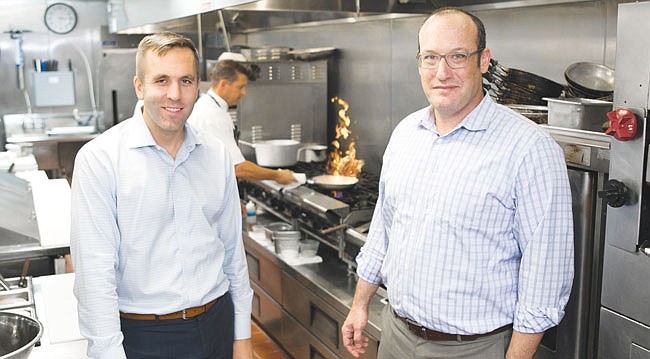- November 24, 2024
-
-
Loading

Loading

One of a restaurant owner's biggest worries — when, and by how much, to raise prices of menu items — can be a thorny and tense situation.
That lone issue has fueled the rise of Tampa-based Revenue Management Solutions.
With little fanfare outside its niche sector, the company uses a data-based approach and regression analysis to understand what customers will pay for a specific menu item. The formula includes the time of day people order items, how often an item is ordered and other data connected to the purchase.
Founded in 1994, RMS works with some of the fast-food industry's biggest brands, such as McDonald's, Yum! Checkers and the company's first client, Dairy Queen. Clients include some 40 major brands in 39 countries, and its patented processes are used in 42,000 worldwide locations. In addition to its Tampa headquarters, RMS has offices in Paris, Singapore, Tokyo and London. The company has about 150 employees, including 100 in the United States, and had $25 million in revenue in 2015.
All of that from advising clients whether to say yea or nay to shifts in price points. “Anyone can raise prices in an attempt to offset cost pressures,” says longtime RMS employee John Oakes, 37, promoted to CEO in January.
But RMS, adds COO Mark Kuperman, 42, helps clients “understand their business through a special lens — the point-of-sale data.”
Now RMS seeks a bigger lens for its own brand. Part of that stems from Oakes' recent promotion, when he replaced co-founder Thomas Kelly, now chairman emeritus. “A lot of people only see us as the restaurant pricing company,” says Oakes, “but we go a lot deeper than that.”
RMS analysts, for example, have started to work with clients on difficult trends to price, such as healthier, locally sourced and sustainable ingredients and the impact of mobile ordering apps. Says Oakes: “We are an analytical arm of the company.”
Given its work in the fast-food sector, RMS has also been working with clients on how and when to raise prices to compensate for minimum wage increases. (The RMS view: Don't haphazardly raise menu prices to make up for that cost.)
Kelly founded the company with George Rice, a fellow hospitality industry executive. Rice held senior leadership posts with both Dunkin' Donuts and NPD Research, and also taught food and beverage strategic marketing at the Cornell University School of Hotel Administration. Kelly owned his own restaurant, was the director of Hospitality Management at the University of Minnesota-Crookston and also taught at Cornell. Kelly also consulted for AAA on how to rate restaurants and worked with brands worldwide on pricing and new locations prior to RMS.
Kelly's belief has long been that restaurant owners and managers need to replace their gut with data when it comes to menu prices. His method: Compare changes in prices to fluctuations in profits and guest counts. That can show if a location is charging too much, or maybe it isn't charging enough for a certain item.
With a team of software developers and data crunchers, RMS has created a quantitative modeling system, supported by five U.S. patents, that brings Kelly's method to clients. The company, in general, can increase a client's gross profit by a minimum of 1% of sales while maintaining customer traffic, says Oakes, who joined RMS in 2005. Oakes started in IT, straight out of the University of Tampa.
Oakes, COO for three years and chief information officer before that, says one of the company's biggest challenges is in some ways a good problem: It's a victim of its own success. Clients expect magic on the margins. “New clients are demanding,” says Oakes. “You have to hit a home run on day one.”
(This story was updated to include the correct spelling of Yum!, the correct year the company was founded and some of the current services it provides.)